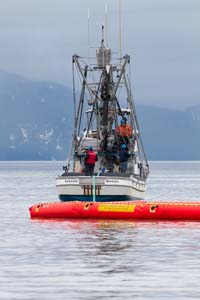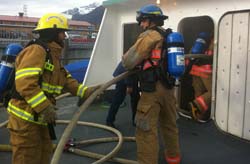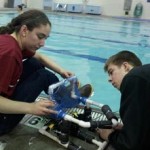Articles from the July issue of The Observer newsletter are now online.

1. Industry and council test spill response plans during drill
On June 12 and 13, an oil spill drill conducted by the U.S. Coast Guard and hosted by Alyeska tested oil spill contingency plans for the Valdez Marine Terminal. During the drill, the council put aspects of its own internal spill readiness plan to the test.
Read more: Industry and council test spill response plans during drill
2. Citizens’ advisory council for Gulf of Mexico holds first meeting
Representatives from U.S. states bordering the Gulf of Mexico met May 30 in New Orleans to “move forward with the establishment of a Gulf of Mexico Regional Citizens’ Advisory Council,” according to a press release from the group.
Read more: Citizens’ advisory council for Gulf of Mexico holds first meeting
3. Council staffer Linda Robinson retires after 23 years with the council
Linda Robinson retired from the council in June, after 23 years of dedication to the council and its mission. Read more from Linda in her final Community Corner column.
Read more: Council staffer Linda Robinson retires after 23 years with the council


 The tentative times for public sessions are from 8:30 a.m. to 4:30 p.m. on Thursday, and from 9:00 a.m. to 11:30 a.m. on Friday. The meeting is open to the public, except for executive sessions. Public comments are scheduled for Thursday starting at 8:55 a.m.
The tentative times for public sessions are from 8:30 a.m. to 4:30 p.m. on Thursday, and from 9:00 a.m. to 11:30 a.m. on Friday. The meeting is open to the public, except for executive sessions. Public comments are scheduled for Thursday starting at 8:55 a.m.